
The Painted Veil
正版
¥ 50 九五品
仅1件
作者W. Somerset Maugham
出版社Vintage; Reprint edition
出版时间2004-10
装帧其他
货号D14
上书时间2024-06-20
- 在售商品 暂无
- 平均发货时间 10小时
- 好评率 暂无
- 店主推荐
- 最新上架
商品详情
- 品相描述:九五品
图书标准信息
- 作者 W. Somerset Maugham
- 出版社 Vintage; Reprint edition
- 出版时间 2004-10
- ISBN 9781400034215
- 装帧 其他
- 开本 其他
- 页数 256 页
- 【内容简介】
- Shallow, poorly educated Kitty marries the passionate and intellectual Walter Fane and has an affair with a career politician, Charles Townsend, assistant colonial secretary of Hong Kong. When Walter discovers the relationship, he compels Kitty to accompany him to a cholera-infested region of mainland China, where she finds limited happiness working with children at a convent. But when Walter dies, she is forced to leave China and return to England. Generally abandoned, she grasps desperately for the affection of her one remaining relative, her long-ignored father. In the end, in sharp, unexamined contrast to her own behavior patterns, she asserts that her unborn daughter will grow up to be an independent woman. The Painted Veil was first published in 1925 and is usually described as a strong story about a woman's spiritual journey. To more pragmatic, modern eyes, Kitty's emotional growth appears minimal. Still, if not a major feminist work, the book has literary interest. Sophie Ward's uninflected reading is competent if not compelling.
- 【作者简介】
-
William Somerset Maugham, CH (January 25, 1874 – December 16, 1965) was an English playwright, novelist, and short story writer. He was one of the most popular authors achieving recognition as the highest paid of his profession during the 1930s.
Commercial success with high book sales, successful play productions and a string of film adaptations, backed by astute stock market investments, allowed Maugham to live a very comfortable life. Small and weak as a boy, Maugham had been proud even then of his stamina, and as an adult he kept churning out the books, proud that he could.
Yet, despite his triumphs, he never attracted the highest respect from the critics or his peers. Maugham himself attributed this to his lack of "lyrical quality", his small vocabulary and failure to make expert use of metaphor in his work.
It seems equally likely that Maugham was underrated because he wrote in such a direct style. There was nothing in a book by Maugham that the reading public needed explained to them by critics. Maugham thought clearly, wrote lucidly, and expressed acerbic and sometimes cynical opinions in handsome, civilized prose. He wrote in a time when experimental modernist literature such as that of William Faulkner, Thomas Mann, James Joyce and Virginia Woolf was gaining increasing popularity and won critical acclaim. In this context, his writing was criticized as "such a tissue of clichés that one's wonder is finally aroused at the writer's ability to assemble so many and at his unfailing inability to put anything in an individual way"[16].
Maugham's homosexual leanings also shaped his fiction, in two ways. Since, in life, he tended to see attractive women as sexual rivals, he often gave the women of his fiction sexual needs and appetites, in a way quite unusual for distinguished authors of his time. "Liza of Lambeth," "Cakes and Ale" and "The Razor's Edge" all featured women determined to service their strong sexual appetites, heedless of the result.
Also, the fact that Maugham's own sexual appetites were highly disapproved of, or even criminal, in nearly all of the countries in which he traveled, made Maugham unusually tolerant of the vices of others. Readers and critics often complained that Maugham did not clearly enough condemn what was bad in the villains of his fiction and plays. Maugham replied in 1938: "It must be a fault in me that I am not gravely shocked at the sins of others unless they personally affect me."
Maugham's public account of his abilities remained modest; toward the end of his career he described himself as "in the very first row of the second-raters". In 1954, he was made a Companion of Honour.
Maugham had begun collecting theatrical paintings before the First World War and continued to the point where his collection was second only to that of the Garrick Club[17]. In 1948 he announced that he would bequeath this collection to the Trustees of the National Theatre, and from 1951, some 14 years before his death, it began its exhibition life and in 1994 they were placed on loan to the Theatre Museum in Covent Garden.
相关推荐
-

The Painted Veil
八五品东莞
¥ 40.00
-

The Painted Veil
九品运城
¥ 55.00
-

The Painted Veil
八五品苏州
¥ 60.00
-

the painted veil
八五品北京
¥ 15.00
-

The Painted Veil
九品天津
¥ 12.50
-

The Painted Veil
九品北京
¥ 54.00
-

The Painted Veil
九品天津
¥ 8.33
-

The Painted Veil
八五品肇庆
¥ 138.00
-

The Painted Veil
九品天津
¥ 80.00
-

THE PAINTED VEIL 2
八五品北京
¥ 5.00
— 没有更多了 —




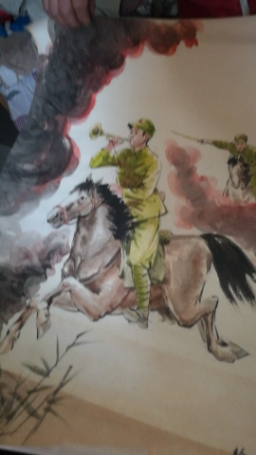

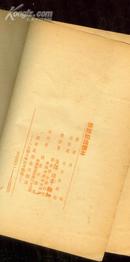
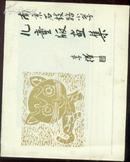
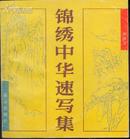



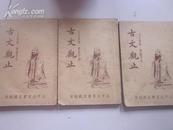











以下为对购买帮助不大的评价